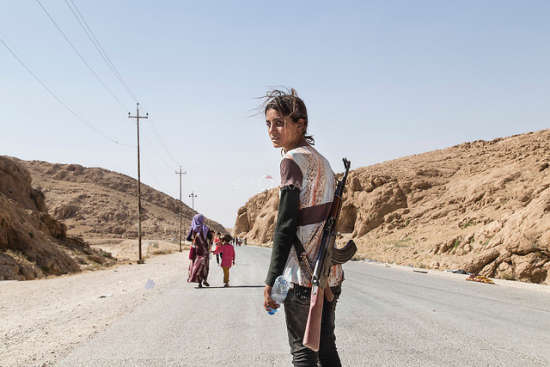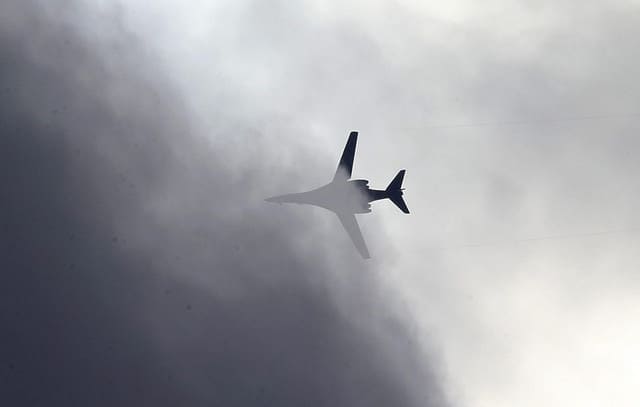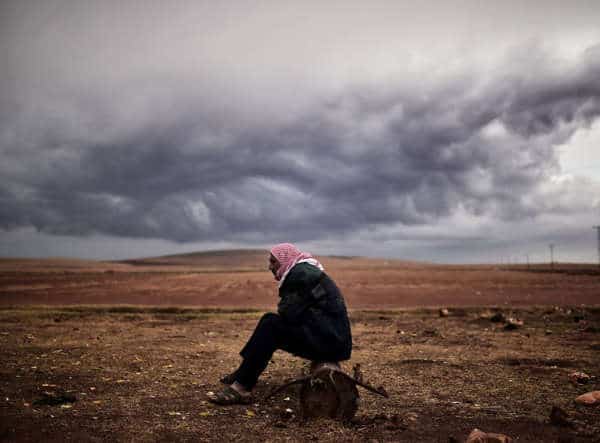For many years now there has been a constant stream of distressing news coming from the Middle East: authoritarian regimes frequently curb their political opponents’ right to express concerns and journalists and dissidents are jailed; radical militant Islamist groups are engaged in irreprehensible violent activities against anyone who opposes them, irrespective of their religion, ethnicity or gender; jihadists from all over the world have developed connections to multiple radical groups in the region; and millions of displaced people who have lost loved ones, homes, and possessions try to cling to life away from home.
What is more, news emanating from the region seems to become increasingly distressing and concerning. It’s not even possible to speculate on how all this could end and how ordinary people can begin to build their lives in a secure environment, cultivate their skills, cherish their loved ones and contribute to the lives of others – things many of us take for granted on a daily basis.
Some analysts argue that it is the post-imperial state-building process that is responsible for the extent of conflict and high levels of unrest in the Middle East, seeing violence as a natural outcome of such processes. For these scholars, all significant political change in the history of human kind has involved violence and fighting, in what is seen as an almost inevitable process.
Why do we give into such arguments so easily? Why assume that people will lose their lives, their loved ones, homes, suffer torture and distress, because it is a ‘natural’ or ‘expected’ outcome of political re-settlement, whether this resettlement is within a state or between multiple states?
Another trend in thinking that tries to explain the existence of war and conflict links to the idea of justice and argues that people may perceive good cause and reasons for engaging in conflict, such as self-defence and protection of vulnerable people. The idea that the war is undertaken for rightful reasons justifies and normalises the outcomes of war and conflict for actors engaging in fighting. However, deciding on who has the rightful cause and who doesn’t isn’t as straightforward as it seems. Moreover, throughout a sustained period of conflict, whether in the form of low-level tension or direct military confrontation, the process of conflict can become so entrenched that it becomes difficult to distinguish the right from wrong.

Most comments and analysis written on the conflict and war in Iraq and Syria today look predominantly at the nitty gritty of the causal relations between the actions of actors involved. Such analyses typically investigate whose fault the conflict is, who started it and who is escalating it. Is the escalation of the conflict with the Islamic State of Iraq and Sham (ISIS)’s the US and UK’s fault because of their decision to intervene in Iraq in the first place, did the conflicts emanate from the US’s decision not to intervene in Syria, or does responsibility lie with the opportunistic and authoritarian actions of the leaders of ISIS? Is it driven by the sectarian nature of politics and the rift between the Sunni and Shia military and political forces? What responsibility does the political culture in the region hold for what we see today?
Regardless of the original drivers of the conflict (and in reality it is undoubtedly some mix of all these above mentioned reasons) what is striking is that once a conflict gains some momentum and begins to become entrenched, the actors involved in the conflict may well have an interest in perpetuating it and an interest in sustaining divisions within the region.
They become stuck within a path-dependent process that renders it increasingly difficult to abandon their original decision to engage in war.
Perhaps by today the initial causes of the conflict matter less – it is more about the process of conflict until one side gives up or until both/all sides manage to agree a deal – a deal that would make all the sides feel they have gained something through agreement.
What is concerning under this understanding of the entrenchment of conflict is that for the actors who are doing the fighting, their interest in perpetuating the conflict and the path-dependency of this process normalises the notions of conflict, war, death and displacement. However, for the people on the ground going through such experiences it is often another story entirely. For the Yezidis from the Sinjar region who faced ISIS attacks and escaped; for the people of Kobane on the Syrian-Turkish border who left their homes and became refugees to escape the fighting between the fighters of Peoples Protection Units (YPG), the armed wing of Kurdish Democratic Union Party in Syria, and the Islamic State militant groups; and for all the other ordinary peoples – Christian or Muslim, Shia or Sunni, Kurdish, Arab, Kurdish, Yezidi, Chaldean or Assyrian – that experienced similar difficulties, war is not a process of increasing returns which becomes normalised and acceptable. These peoples are now experiencing the trauma of conflict, violence, losing their loved ones and their homes – there is nothing that can be normalised in this.

For the large numbers of displaced people trying to cope with the pain of separating from their family members that were left behind and trying to cope with the worry about the fates of the ones kidnapped, their priorities in life have changed substantially. Rather than day-to-day management of the life they used to lead, now they look for a place to live, cope with health problems in adverse conditions, and try to secure clean food and water. Clothes, bedding, and schools become akin to luxury goods for them. Not having work to occupy their time and having nothing to do but wait is another adversity that adds to the difficulties those living in refugee camps. It strains many of us even to imagine that such a conflict and its effects would ever become normalised over time.
How can such things be normalised when their dream of having a safe place to live, a home, and the safety of their loved ones or being able to work and provide for their daily needs is what keeps them going rather than simply adjusting.
Imagining Iraq and Syria and the wider region without conflict sounds unrealistic considering the intensity of the tension and the current entrenched divisions between different political groups. However, deep and entrenched divisions and enmity between political or military rival groups do not mean that ordinary people in a society must also suffer from such divisions. One would like to hope that if rival political and military groups agree to end the conflict, ordinary people would not demand for the continuation of the conflict. However, it seems that making peace does not come as naturally to humankind as disagreement and argument. Finding divisions, highlighting differences, focusing on conflicts of interest and harbouring resentment and enmity appear easier than talking, agreeing and reaching a consensus. At least that is what recent world history tells us.
But, is this normal? Why do we so easily give into the arguments that humanity is prone to generating conflict?





